News
FG plans additional 150MW to national grid by year-end -Minister

The Federal Government on Wednesday revealed plans to boost Nigeria’s electric power supply by 150MW before 2024 ends.
The Minister of Power, Adebayo Adelabu, disclosed this to State House correspondents after a business session at the State House during the state visit of the German President, Frank-Walter Steinmeier, to President Bola Tinubu.
“So we believe that before the end of the year, an additional 150MW of capacity is going to be added upon completion of the entire pilot phase,” Adelabu said while explaining the implementation of the Presidential Power Initiative agreement.
On December 1, 2023, the Nigeria and Germany signed the Presidential Power Initiative agreement to inject 12,000 MegaWatts of electricity into the national grid.
The signing was presided over by the leaders of both countries, President Bola Tinubu of Nigeria and German Chancellor Olaf Scholz, on the sidelines of the United Nations Climate Change Summit, COP28, in Dubai, the United Arab Emirates.
Managing Director of the Federal Government of Nigeria Power Company, Kenny Anuwe, and the Managing Director (Africa), Siemens AG, Nadja Haakansson, signed the agreement.
Adelabu, who attended the business session, said, “The game now is about cooperation, collaboration and partnership. The flagship of this bilateral relationship has to do with what we call the Siemens project, which is our Presidential Power Initiative where Siemens is implementing the Brownfield and Greenfield transmission substations of the Presidential Power initiative.
“Since signing the agreement in Dubai at COP 28 in December 2023, we have made significant progress. We have completed the pilot phase of this project, up to 80 per cent.
“This involves the importation, installation and commissioning of 10 power transformers and 10 power mobile substations. They’ve been imported. They’ve been installed, and lots of them have been commissioned. We have just about two left to be commissioned before the end of the year.”
He added, “The project had added at least 750 megawatts to our transmission grid capacity, which is why the relative stability we are seeing in the grid today is the direct positive impact of the pilot stage completion.”
His comments came hours after the national grid collapsed for the 12th time in 2024.
Grid failures are not strange in one of Africa’s largest economies, whose power sector still suffers gross underinvestment, says the Special Adviser to the President on Energy, Olu Verheijen.
Despite an installed capacity of about 13,000MW, Nigeria’s power grid transmits only 4000MW due to ageing infrastructure, the Minister of Power, Adelabu, revealed at a briefing on October 28.
However, that amount is grossly inadequate for over 200 million citizens, leaving many areas without reliable electricity as individuals and government entities struggle to pay mounting power bills.
In addition to weak infrastructure, Nigeria’s power grid has also been a target of sabotage.
In October, armed groups damaged the Shiroro-Kaduna transmission line, cutting electricity supply to 17 northern states.
Following the incident, repair crews could not access the site due to security concerns. Repairs began only after President Bola Tinubu directed the National Security Adviser to work with the Army and Air Force to deploy adequate security personnel, including aerial cover, to protect the engineers fixing the damaged transmission line.
However, Adelabu is sure that the administration’s steps will the stabilise power supply.
“We are quite confident from the satisfaction that we got from the completion of the pilot stage. When we are done with the Phase One project in the transmission, the entire grid will not remain the same.
“That’s why we tell Nigerians this is a very old grid. It’s quite fragile, and it’s dilapidating.
“We need to revamp the entire grid to ensure stability going forward. That is the presidential power initiative,” he stated.
Adelabu also announced that the FG is moving into the first phase of the project, which involves rehabilitating 14 existing substations and constructing 23 new ones nationwide.
He explained that the commercial aspects of the first phase have been concluded, and the next step involves securing a no-objection approval from the Bureau of Public Procurement.
Following this, the proposal will be presented to the Federal Executive Council. Once approved, the financing arrangements will be finalised, enabling the commencement of the project’s first phase.
The minister highlighted the FG’s commitment to renewable energy as a key component of its energy transition plan to achieve net zero emissions by 2060.
He emphasised the need for collaboration and partnership with technologically advanced countries like Germany, leveraging their expertise to harness Nigeria’s abundant natural resources, including solar energy, with over 30 states receiving a minimum of 10 hours of sunshine daily.
“We also talked about renewable energy, which we believe is the way forward. We have an energy transition plan to achieve net zero emissions by 2060.
“To achieve this, we must collaborate. We must partner. We must cooperate with a country like Germany, which has the technology, and we have the sun. Over 30 states in Nigeria have a minimum of 10 hours of sunshine every day.
“They have the technology. We have the wind. We have the desert wind up north and the coastal winds down south. The new highway from Lagos to Calabar is opening up our coastal offshore wind across the nine coastal states of Lagos, Ogun, Ondo, Edo, Delta Rivers, Bayelsa, Akwa Ibom, and Cross River,” Adelabu explained.
Furthermore, the minister pointed out the untapped potential of over 300 dams for hydroelectric power, which could be accessed through developments like the new Badagry-Sokoto road.
He stressed that these opportunities create immense potential for expanded energy access in collaboration with Germany.
Adelabu argued, “Then, talking about our hydroelectric power plants, we have over 300 dams we have not utilised for hydroelectric power because of poor access.
“With the new road of Badagry to Sokoto, a lot of these dams will also be opened up. So we have so many opportunities and potentials on what we can do with Germany to achieve expanded energy access to our people going forward.”
The power minister also reiterated that an off-grid system is the key to addressing Nigeria’s energy challenges, emphasising the need to implement a distributed power model.
This approach would allow each of the 36 states and the Federal Capital Territory to develop their power-generating plants embedded within their states.
Such a model, he explained, would shield states from disruptions on the national grid, providing backup power in case of national grid failures.
“The off-grid system is the solution. Still, we must implement a distributed power model whereby each of our 36 states and FCT will have their own generating plants within the state.
“This network will be embedded within the states, and they will be shielded from any problem on the national grid. When there is a problem on the national grid, they will all have a backup.
“We have a preponderance of rural areas. We must electrify our rural areas and have isolated tertiary health and education institutions that we must use. So, that is the use of renewable energy for off-grid solutions,” he said.
He highlighted Germany’s role in this effort, particularly through its development agency, GIZ, which has supported grid extensions and renewable energy initiatives.
Additionally, he revealed that several German companies and private investors have shown interest in renewable energy projects in Nigeria, including solar, wind, and hydropower.
While no new agreements were signed at the meeting, discussions focused on accelerating the implementation of existing agreements.
News
Bakare criticizes Tinubu, says his ‘motor park’ politics has destroyed NASS
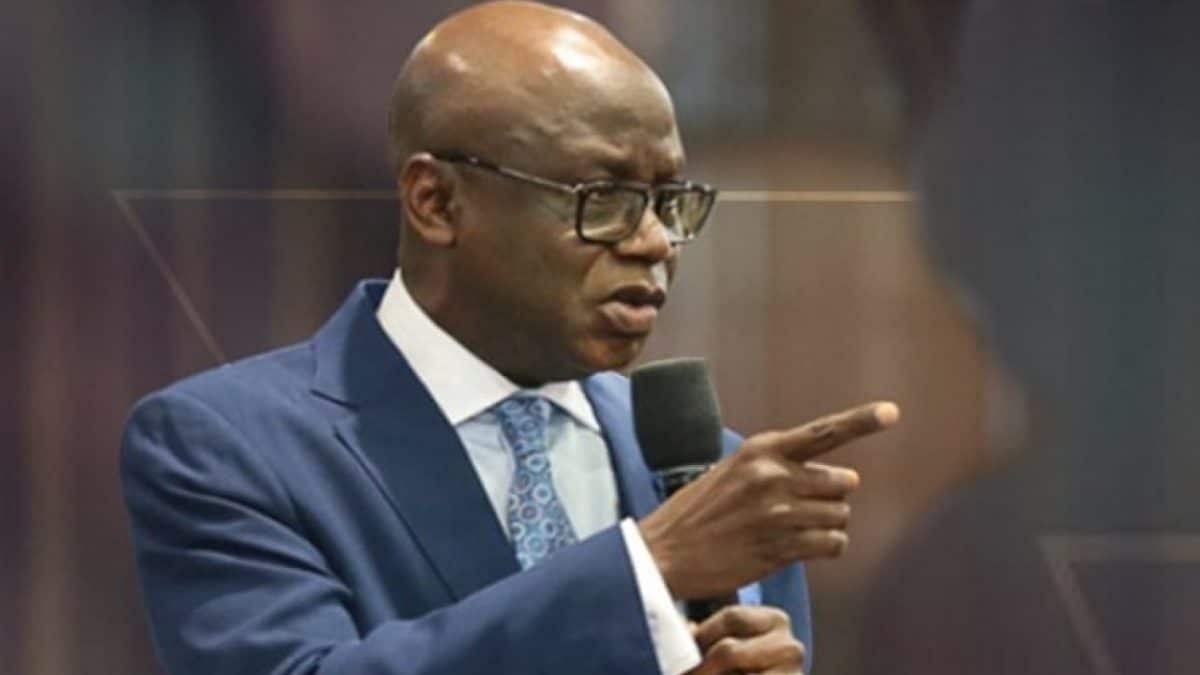
Senior Pastor of the Citadel Global Community Church (CGCC), Pastor Tunde Bakare, has accused President Tinubu of promoting a crude ‘motor park’ style of politics that has destroyed Nigeria’s political institutions.
Speaking during his state of the nation address in Lagos, themed: ‘Let the people know the truth and the country is safe,’ on Sunday, April 20, Bakare blamed the President for turning the National Assembly into a rubber-stamp institution, saying Tinubu’s influence had undermined the separation of powers as lawmakers now blindly approve the president’s decisions in sycophantic loyalty.
He said this has resulted in the weakest and most compromised National Assembly since Nigeria’s return to democracy in 1999.
“At the centre of this political banditry is the motor park brand of politics nurtured by the old brigade politicians, and in recent times, by President Tinubu. Mr. President, it is through your influence that the National Assembly has become a haven for legislative rascality. Mr. President, it is under your watch that the National Assembly has become an extension of the executive, grossly violating the principles of separation of powers and rubber-stamping the whims and caprices of your office, while singing the international anthem of sycophants -On your mandate we shall stand.
“Mr. President, thanks to your political machinations, Nigeria is now bedevilled by a captured National Assembly, the most ineffective in its checks-and-balances role since the start of the Fourth Republic.
“In 2006, the Fourth National Assembly had the audacity to reject the tenure extension bid of a sitting president. In 2010, the Sixth National Assembly summoned the courage to stand against a power-hijacking cabal and restore Nigeria to the path of constitutionality by invoking the Doctrine of Necessity. “In 2011, the House of Representatives of the Seventh National Assembly had the courage to elect its leaders, as did the Senate of the Eighth National Assembly in 2015, defying executive interference.
“This National Assembly has by its unconstitutional endorsement of the president’s abuse of powers proven to be the most spineless in our recent history. Through its actions and inactions, it has, in effect, become the 48th member of the president’s cabinet, while a cabinet minister has, more or less, become a third-term state governor in Rivers State, pampered by the indulgences of the president,” Bakare said.
He also said the past few months had shown that those responsible for steering the course of the nation lack the humility and character demanded of leaders and what the country has seen is a descent into tyranny and brazen abuse of power.
“From the theatre of the absurd staged in Rivers State, with puppets on strings controlled by directors in Abuja, to the dance of shame performed by the National Assembly in their rush to suspend the constitution and endorse, through the backdoor, the usurpation of powers by President Tinubu; from the Senate’s shameless bid to silence Senator Natasha Akpoti-Uduaghan for demanding that the President of the Senate upholds the moral standards required of that office, to the uncouth outbursts of an undistinguished senatorial misfit who tried in vain to silence the distinguished citizens attempting to testify on behalf of Senator Akpoti-Uduaghan, it is clear that our so-called leaders are determined to turn Nigeria into a mafia state.
“The two main contenders in the ongoing institutional immorality Olympics are the executive and the legislature. While it is not in dispute that our institutions and constitution are inadequate, it has become obvious that our biggest problems are the occupiers of these institutions and executors of the constitution. “The quality of leadership in Nigeria has become so repugnant that citizens must declare a state of emergency on governance, demanding that every aspiring public officeholder undergoes rigorous psychiatric evaluation.
News
Sad as hotelier slumps, dies at wife’s 60th birthday thanksgiving

A prominent Lagos hotelier, Otunba Kunle Akinyele, died suddenly on Saturday after collapsing during a church thanksgiving held to celebrate his wife’s 60th birthday.
The tragic incident occurred at Christ Apostolic Church, Oke-Iyanu, Odemuyiwa District Headquarters, in Egbeda, Lagos State.
In a now-viral video shared on Facebook by Ayoade Ojeniyi on Sunday, Akinyele was captured seemingly gesturing for help, possibly asking for water or an inhaler, before slumping in the middle of his testimony.
The video showed the late businessman visibly distressed and gesticulating moments before he collapsed.
The thanksgiving service was held in honour of his wife, Deaconess Catherine Adejoke Akinyele. A reception had been scheduled to follow immediately at Noble Castle Events Centre in Igando.
One of the event vendors, who shared their experience on Facebook, revealed that they had arrived at the reception venue by 10am for a party that was billed to commence at 2pm.
The celebrant, her husband, their children, and guests had earlier gone to the church for the thanksgiving and were expected to head to the reception afterwards.
Those plans were, however, disrupted when news broke that Akinyele had collapsed in church. Efforts to resuscitate him were unsuccessful.
“Variety of foods were set, decoration, cocktail, emu oguro, and many more,” the vendor wrote, explaining that the live band had already arrived and mounted about 25 speakers.
Still reeling from the shock, the vendor added that the Master of Ceremony had spoken with Akinyele around 1:23 pm, but less than an hour later, the devastating news of his death had emerged.
The reception was immediately cancelled, and guests were seen departing the venue in confusion and disbelief.
“This is how people die?” the vendor lamented in the post.
“I can’t possibly ask for my balance for the job,” the vendor added.
As of the time of this report, the exact cause of death had yet to be officially confirmed.
News
WAEC bars 574 schools from conducting 2025 WASSCE over examination malpractices
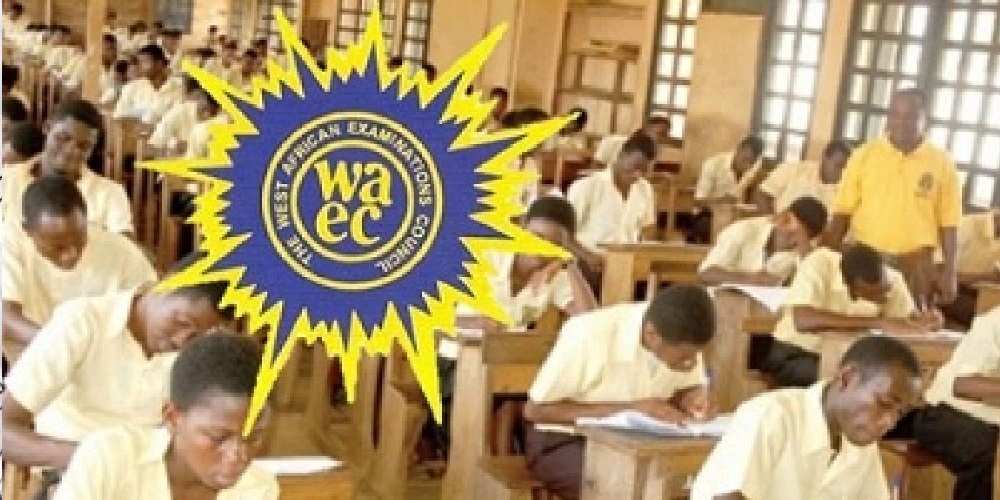
The West African Examinations Council has revoked the licences of 574 secondary schools in Nigeria.
WAEC announced that the affected schools were found to have committed examination malpractices.
The examination body also stated that the schools will not be allowed to conduct examinations even as the 2025 West African Senior School Certificate Examination, commences from Thursday, April 24, 2025.
This was disclosed by the Head of WAEC’s National Office, Dr. Amos Dangut, during a press briefing on Thursday at the headquarters of the examination body in Lagos.
Dangut said WAEC had forwarded the list of the affected schools to the Nigerian government.
“This year, we have shared with them a total of 574 schools that have had their recognition withdrawn, and that is also going to be the same for all examining bodies.
“So, these are those that have got their license revoked as far as the examination centre is concerned. So we will not conduct examinations there. We don’t know them as far as conducting examinations,” Dangut said.
For the forthcoming 2025 WASSCE, Dangut stated that 1,973,253 candidates registered for the examination from 23,554 schools.
Speaking further, he said 979,228 males and 994,025 females would take part in the examination.
-
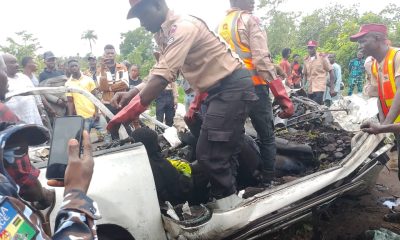
 News20 hours ago
News20 hours agoDouble tragedy: Father, three children, maid killed in Osun road crash
-
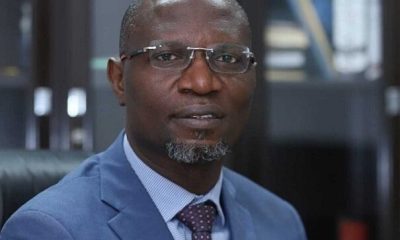
 News20 hours ago
News20 hours agoSAD! SEC DG says “we can’t recover N1.3trn Nigerians lost to CBEX ponzi scheme”
-

 News18 hours ago
News18 hours agoNDLEA nabs bandits supplier with drugs concealed in private part(Photos)
-
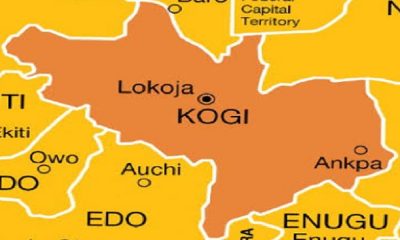
 Metro24 hours ago
Metro24 hours agoShock as 2 naked lovers found dead in Kogi
-

 News24 hours ago
News24 hours agoIMF expresses concern over high poverty rate, food insecurity in Nigeria
-

 News10 hours ago
News10 hours agoIsrael’s remote controlled bulldozers breaking ground in Gaza war
-

 Sports13 hours ago
Sports13 hours agoBREAKING! Arsenal hammer relegation Bound Ipswich 4-0
-

 News19 hours ago
News19 hours agoNUJ-FCT Chairman Urges Journalists to Embrace Spirit of Easter


















